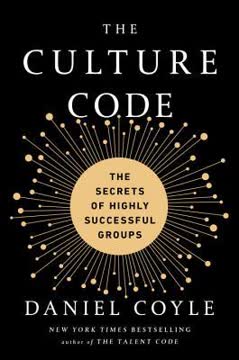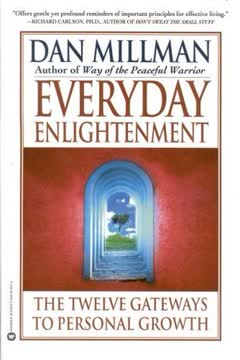Key Takeaways
1. The Creative Compass: A Universal Guide to Writing Success
"The five stages apply equally to narrative and expository writing."
Universal writing process. The Creative Compass outlines a five-stage approach to writing that applies to all forms of storytelling and communication. These stages - Dream, Draft, Develop, Refine, and Share - provide a structured yet flexible framework for writers to navigate their creative journey.
Cyclical nature of writing. Rather than a linear progression, these stages often overlap and repeat, forming a cycle that writers may revisit multiple times throughout a project. This cyclical nature allows for continuous improvement and refinement of ideas.
Practical application. The Creative Compass offers concrete strategies and exercises for each stage, helping writers:
- Generate and develop ideas
- Overcome writer's block
- Revise and polish their work
- Navigate the publishing landscape
2. Dream: Define Your Story and Embrace Your Sticky Idea
"Your stickiest idea may creep in like a beggar long before it parades out as a king."
Cultivate inspiration. The Dream stage is about generating and nurturing ideas. Writers are encouraged to:
- Create space for creativity
- Pay attention to recurring thoughts or images
- Explore concepts that resonate emotionally
Define your story. Before diving into drafting, it's crucial to clarify the core elements of your narrative:
- Plot
- Characters
- Setting
- Theme
Embrace the "What If?" Formulate a compelling question that encapsulates the essence of your story. This "What If?" serves as a guiding light throughout the writing process, helping maintain focus and direction.
3. Draft: Tell Your Story and Permit Imperfection
"Permit yourself to write badly in your early drafts — as all writers must — so that you will continue writing."
Start writing. The Draft stage is about getting words on the page, no matter how imperfect. Key strategies include:
- Setting achievable daily word count goals
- Writing without editing
- Embracing the messy first draft
Choose your narrator. Consider the impact of different narrative perspectives:
- First-person: Intimate but limited
- Second-person: Engaging but challenging
- Third-person: Flexible but potentially distant
Focus on sensory details. Bring your story to life by engaging the reader's senses:
- Visual descriptions
- Sounds and dialogue
- Textures and tactile sensations
- Smells and tastes
- Emotional responses
4. Develop: Follow the Golden Thread and Trust Your Instincts
"When you develop, it's essential that you remain focused on moving the reader and not on merely moving words around on the page."
Identify the golden thread. The Develop stage is about uncovering and strengthening the core narrative that runs through your work. This involves:
- Analyzing plot structure
- Developing characters
- Enhancing thematic elements
Seek feedback. Engage with beta readers and writing groups to gain fresh perspectives on your work. Consider:
- What resonates with readers?
- Where do they struggle or lose interest?
- What questions or confusion arise?
Trust your instincts. While feedback is valuable, ultimately, you must make decisions that serve your story. Develop the confidence to:
- Evaluate criticism objectively
- Implement changes that align with your vision
- Discard suggestions that don't fit
5. Refine: Choose the Right Words and Embrace Creative Destruction
"Stick to the point and whenever you can, cut."
Polish your prose. The Refine stage focuses on the craft of writing at the sentence level. Key areas of focus include:
- Word choice and precision
- Sentence structure and rhythm
- Paragraph flow and transitions
Embrace creative destruction. Be willing to cut or revise elements that don't serve the story, no matter how attached you may be to them. This may involve:
- Deleting entire scenes or chapters
- Combining or eliminating characters
- Restructuring the narrative arc
Read aloud. One of the most effective ways to catch awkward phrasing, repetition, or pacing issues is to read your work aloud. This technique helps you:
- Identify areas that don't flow naturally
- Catch errors your eyes might miss
- Ensure dialogue sounds authentic
6. Share: Move Your Readers and Navigate the Publishing Landscape
"We all do the work of authors now."
Know your audience. Before sharing your work, clearly define:
- Your target readers
- The emotional impact you want to achieve
- The key takeaways or messages
Craft a compelling pitch. Whether seeking traditional publishing or self-publishing, you need to articulate your book's essence:
- Write an engaging query letter
- Develop a concise elevator pitch
- Create compelling jacket copy
Explore publishing options. Consider the pros and cons of different publishing paths:
- Traditional publishing: Professional support but less control
- Self-publishing: Full control but more responsibility
- Hybrid models: Combining aspects of both approaches
7. Persistence and Self-Awareness: The Writer's Greatest Assets
"We prove ourselves in times of crisis not by writing well but by writing onward."
Develop resilience. Rejection and setbacks are part of every writer's journey. Build resilience by:
- Viewing rejection as feedback, not failure
- Celebrating small victories and milestones
- Connecting with other writers for support
Cultivate self-awareness. Understanding your strengths, weaknesses, and creative process is crucial for long-term success:
- Identify your most productive writing times and environments
- Recognize patterns in your work habits
- Regularly reflect on your goals and progress
Commit to lifelong learning. The craft of writing is never fully mastered. Embrace ongoing growth through:
- Reading widely in and outside your genre
- Attending workshops and conferences
- Experimenting with new techniques and styles
Last updated:
Review Summary
The Creative Compass received largely positive reviews, with readers praising its practical advice and inspiration for writers. Many found the five-stage approach helpful, from dreaming to sharing. Some appreciated the father-daughter perspective and insights into the writing process. Several reviewers noted its usefulness for both fiction and non-fiction writers. While a few found parts of the book shallow or difficult to relate to, most considered it a valuable resource for writers at various experience levels.
Similar Books
Download PDF
Download EPUB
.epub digital book format is ideal for reading ebooks on phones, tablets, and e-readers.















